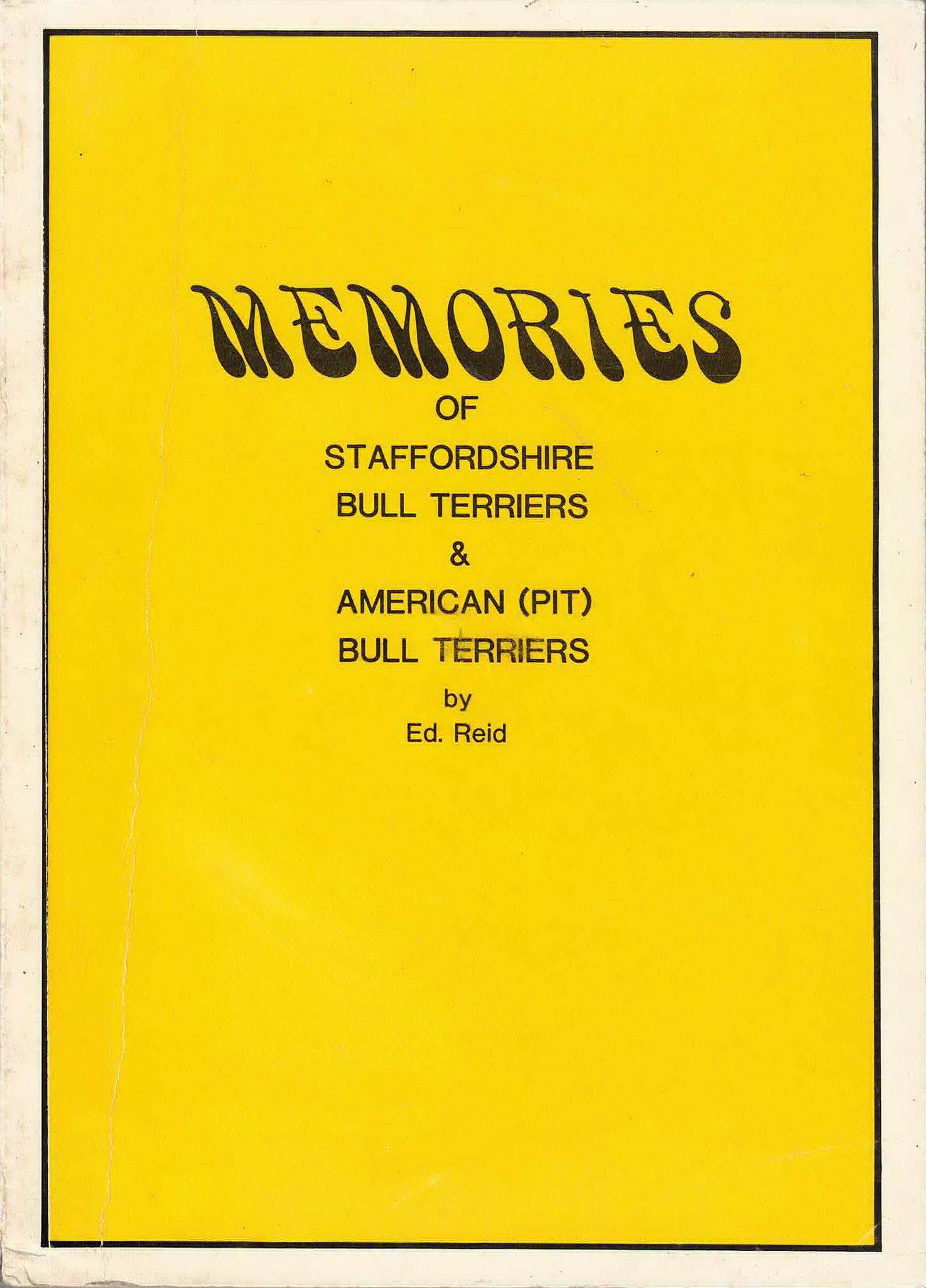First Published: 1975
First Edition: 1975 in hardback
Softcover 1984: 140 pages
Publisher: Publisher: Stockquest Ltd
Size: 207cm x 150cm x 0.8cm approx
Weight: 240g approx
Book Description:
"DUE TO THE EVER INCREASING POPULARITY of Staffordshire Bull Terriers & American (Pit) Bull Terriers, with more and more people coming into these breeds with the passing of each year, with much demand for specialist information on these dogs, I felt that a book like this was needed from which newcomers could study and learn quickly; aided by its many illustrations and informative articles.
To present a comprehensive viewpoint I invited various distinguished personalities from both breeds to submit material to accompany my own herein. Thanks to a gracious response, I'm enabled to present a unique collection of notes, anecdotes, and photographic material that will, I believe, be much appreciated by all enthusiasts of Staffords and Pit Bulls alike.
If students of these breeds enjoy their perusal of the books contents as much as I have enjoyed compiling it, I'll be satisfied that the task was well worthwhile.
As an owner myself of Staffords and Pit Bulls, knowing the endless pleasure that comes with owning such unique dogs. Realising also how misunderstood our breeds are by some outsiders, it is hoped that much on the following pages will help straighten the record.
Ed Reid"
IMPORTANT NOTICE:
I feel that it must be made perfectly clear to all who make a study of this book, that although much of the material appertaining to these dogs is about their fighting propensities, all such references are intended as studies in past history - only - and are in no way intended to inspire or encourage present-day owners, or future owners of these dogs to in any way activate the fighting of dogs for any reasons whatsoever . . . as a form of sport, for gambling upon the outcome, or any other reason.
From notes and anecdotes displayed herein, it is clear that the ancestors of our modern day strains in general, were of the 'tried and true' character of the 'old school'. The modern day 'new school' feels that, by re-directing these muchadmired old-time characteristics along more humanitarian, legal and generally useful channels such as protection-work, tenacity and agility testing exercises, combined with maintaining typical conformation and intelligence, our dogs can retain, to a very high degree, their old-time qualities made apparent on present-day generally accepted levels.
ED REID

